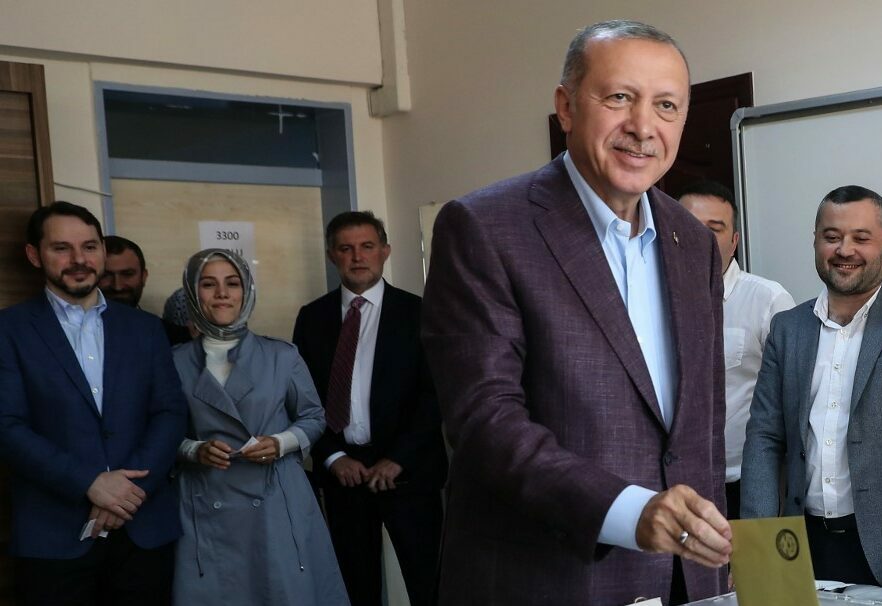Turkish President Recep Tayyip Erdoğan and officials from the ruling Justice and Development Party (AKP) have been expressing negative opinions about a constitutional requirement to garner 50 percent of the vote plus one additional vote — known locally as the “50+1” rule — for election to the position of president.
The rule was part of the executive presidential system that replaced Turkey’s parliamentary system of governance in a referendum in 2017. Erdoğan received around 52 percent of the vote in the 2018 election, thanks to the support of his ally, the far-right Nationalist Movement Party (MHP).
The discussions on the 50+1 election rule started after Temel Karamollaoğlu, leader of the opposition Felicity Party (SP), recently said after a meeting with Erdoğan that the president had said he found the rule to be “disadvantageous.”
Following the revelation of Erdoğan’s stance, Presidential High Advisory Board member Cemil Çiçek argued that the rule causes serious political and systemic problems, urging both the government and the opposition to come together to change it.
“I have said, and keep saying, that this 50+1 [rule] will lead to serious difficulties and drag Turkey into chaos. … 50+1 is triggering serious problems and will do the same in the future, too,” he told the Sözcü daily in an interview over the weekend.
“We have come to such a point that both the government and the opposition have doubts about the 50+1 requirement because in such cases you always need the support of another party,” Çiçek added.
AKP MP İbrahim Aydemir also expressed a similar opinion during a press meeting in parliament on Monday, claiming that the obligation “paved the way for artificial alliances” among Turkey’s opposition parties.
“Under normal circumstances, is it possible for the [pro-Kurdish Peoples’ Democratic Party] HDP and the [nationalist opposition] İYİ [Good] Party to come together? It’s not, but they have. Why do they do it? [They do it] in order to make their rivals lose. … It’s obvious that the system has disadvantages,” Aydemir added, referring to Erdoğan’s statement.
Devlet Bahçeli, leader of the MHP, on Tuesday said in his weekly address to his parliamentary group that discussing changing the 50+1 rule was “unnecessary,” describing it as “the axis of the presidential government system.”
Bahçeli’s statements raised eyebrows as the AKP and MHP are expected to be on the same page as election allies on such issues that would make things easier for them in the 2023 elections, as many say it would be hard for their presidential candidate to garner more than half of the vote in the next elections, based on latest surveys.
Turkey’s opposition parties also slammed the ruling AKP for admitting the disadvantages of a system they themselves had established, underlining that their timing of voicing negative evaluations on it was meaningful as the parties have been readying for the upcoming 2023 elections and the latest polls have shown the AKP losing over 10 percent of its votes since the last elections of 2018.
“Erdoğan’s stance actually points to the ‘burnout syndrome.’ Their power has been exhausted. Their systems have failed, and they have failed, too,” Main opposition Republican People’s Party (CHP) lawmaker Muharrem Erkek said.
“If you say ’50+1 is a problem,’ you are admitting you would lose [in the 2023 elections]. You can’t garner 50 plus 1 [votes]. The government has been caught in a trap set by themselves,” HDP deputy group chair Saruhan Oluç said during a press conference in parliament.



